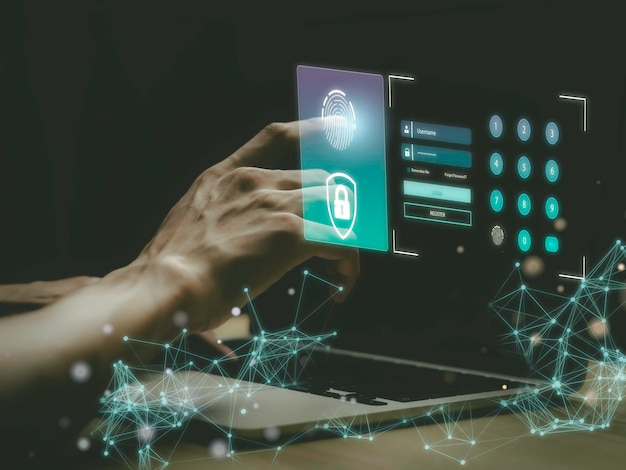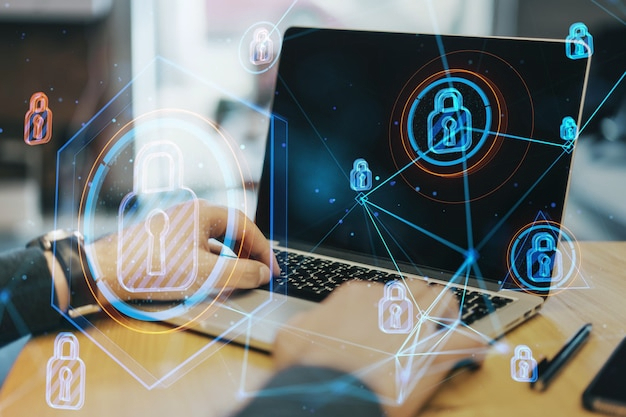In an age where connectivity is dominated by technology, it is crucial to prioritize safeguarding our personal and financial information. Our digital identities, which encompass a vast amount of sensitive data, are constantly under threat from cyberattacks, with phishing attacks being one of the most deceptive forms. These attacks have grown increasingly sophisticated and present a significant risk to both individuals and organizations.
This article aims to emphasize the critical role played by anti-phishing solutions in preserving the sanctity of our digital identities. By exploring the ever-changing landscape of phishing threats and examining cutting-edge anti-phishing measures, we will unravel the key components necessary for protecting what has become an integral part of our lives: our digital identity.

Understanding the Phishing Threat
Phishing is an insidious form of cyber attack wherein deceitful actors assume the identity of trustworthy entities to ensnare unsuspecting individuals into divulging sensitive information such as passwords, credit card numbers, or personal identification. These nefarious tactics often manifest as convincing email communications, fraudulent websites, or manipulative messages that exploit human psychology to entice victims into inadvertently revealing their confidential data.
Phishing attacks can result in serious outcomes, including monetary loss and the theft of personal information. Additionally, they can harm a company's reputation by eroding trust among their clients and partners. As attackers continue to develop more advanced tactics, it is crucial for individuals and organizations to implement strong anti-phishing strategies.
The Role of Anti-Phishing Solutions
Anti-phishing solutions involve an assortment of tools, technologies, and best practices that work together to identify and prevent phishing attacks. These solutions are vital in protecting our digital personas by proactively recognizing and obstructing phishing attempts before they can cause any harm. Here are some key aspects of anti-phishing solutions:
1. Real-time Email Scanning
Email is a frequently used method for conducting phishing attacks. Cybercriminals send deceptive emails that seem authentic, luring individuals into clicking on harmful links or revealing confidential data. To combat this threat, advanced algorithms and pattern recognition techniques are employed by anti-phishing solutions to instantly scan incoming emails.
These solutions analyze various aspects such as sender details, email content, and attachments to identify suspicious emails. Additionally, certain anti-phishing tools take extra precautions by automatically isolating potentially dangerous messages, effectively safeguarding users from unintentionally falling prey to cybercrime.
2. Website Reputation Checks
Fraudsters frequently design counterfeit websites that mimic trusted platforms, aiming to deceive users into sharing their personal data. To combat this, anti-phishing measures employ website reputation checks by cross-referencing website URLs with databases containing records of known phishing sites. When users attempt to access a dubious website, these measures promptly issue warnings, effectively preventing unauthorized entry and ensuring protection against potential data breaches.

3. Employee Training and Awareness
While technology serves as a vital defense mechanism, human vigilance remains an indispensable factor in combating phishing. Anti-phishing solutions often integrate educational components aimed at enhancing individuals' ability to detect phishing attempts. By regularly providing training sessions and conducting awareness campaigns, users are equipped with the necessary knowledge and skills to authenticate emails and websites. This human-centric approach empowers individuals, enabling them to actively defend themselves against the dangers posed by phishing threats.
4. Multi-Factor Authentication (MFA)
Numerous anti-phishing solutions advocate for the implementation of multi-factor authentication (MFA) as an additional layer of protection. By requiring users to provide multiple forms of verification, MFA acts as a robust barrier against unauthorized access, effectively preserving the integrity of digital identities and thwarting potential breaches, even if malicious actors obtain login credentials.
5. User Education and Awareness
While technology plays a significant role in combating phishing attacks, human alertness remains a vital factor. Anti-phishing solutions enhance their effectiveness by incorporating educational elements that empower individuals with the knowledge and skills required to detect phishing attempts. Through regular training sessions and awareness campaigns, users are educated on recognizing common indicators of phishing scams, thus minimizing the likelihood of falling prey to such fraudulent activities.
Visit DuoCircle Here
DuoCircle
5965 Village Way Suite 105-234 San Diego, CA 92130
Phone: +1-855-700-1386
In closing, protecting your digital identity is crucial in today's digital age. Cybercriminals are getting smarter and using more sophisticated techniques to trick users into revealing sensitive information. Investing in anti-phishing solutions can go a long way in safeguarding personal and business information. By implementing these solutions, we can stay one step ahead of cyber criminals and defend our digital identities. It is essential that individuals and organizations take proactive measures to protect themselves and their sensitive information from potential cyber-attacks.